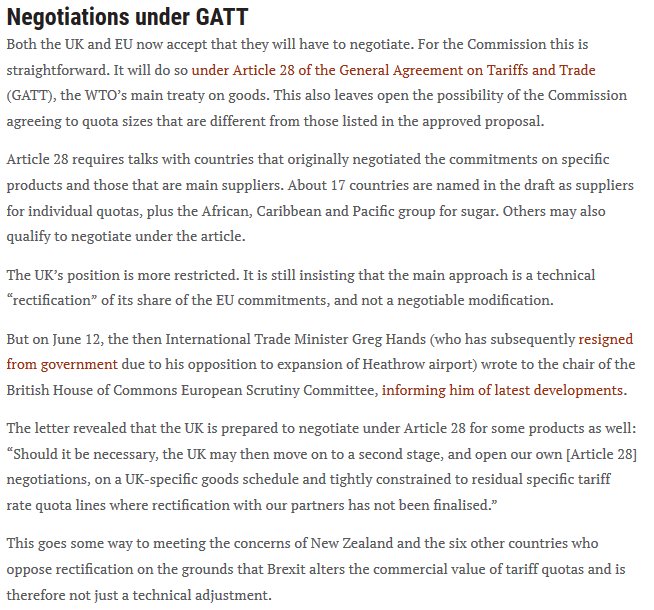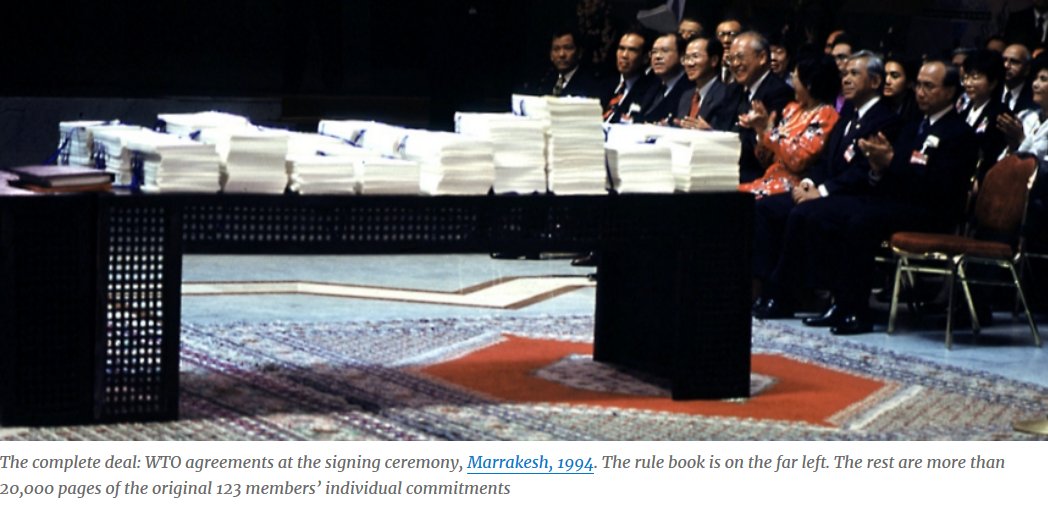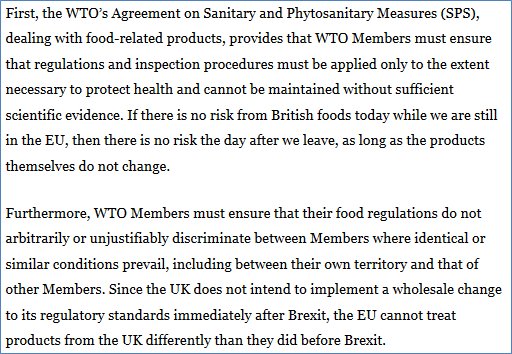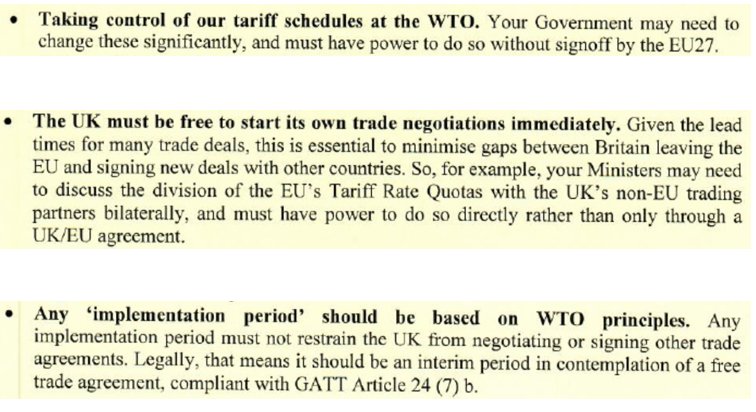
Mainly trade stuff. After WTO Secretariat 1996-2015, back (occasionally) in journalism. Analysis for @IHSMarkitAgri. Usual disclaimers on RT etc.
4 subscribers
How to get URL link on X (Twitter) App


https://twitter.com/TomMitcheson/status/1044253626003324928Confirms: protection for UK geographical indications will automatically continue, but owners of EU GIs protected in the UK will have to re-apply for protection.


https://twitter.com/DavidHenigUK/status/1035419958841356289

https://twitter.com/TeaJunkie1/status/1028340641380458496Is the WTO run by unelected people? (Is the United Nations?)




 The problem with that approach? While *average* EU tariffs are low, many aren't, which means there will be impacts for some UK exporters.
The problem with that approach? While *average* EU tariffs are low, many aren't, which means there will be impacts for some UK exporters.

https://twitter.com/davidcollinslaw/status/1025059964245696512In short, Prof Collins doesn’t understand the WTO’s SPS, TBT and Trade Facilitation Agreements, and the UK’s WTO schedules of commitments.


https://twitter.com/davidcollinslaw/status/1025059964245696512So take it from someone who worked on SPS in the WTO for over 18 years, that this is absolutely wrong.


https://twitter.com/Jacob_Rees_Mogg/status/1024997636821139457Imagine California breaking away from the US, trading with it via normal US WTO tariffs and non-tariff barriers. It would look across the Pacific for its trading relations, and lose all US free trade agreements including NAFTA. Would there really be no adjustment, no shock?

https://twitter.com/bbaschuk/status/1023843908026023936The UK&EU proposals are different but linked.
https://twitter.com/bbaschuk/status/1021869965539008518A couple of points to add.

 Second @Max_AgraEurope on responses, particularly from countries and organisations with interests in beef, to the EU Commission's invitation for comment on its proposed tariff quotas
Second @Max_AgraEurope on responses, particularly from countries and organisations with interests in beef, to the EU Commission's invitation for comment on its proposed tariff quotas
https://twitter.com/SteveBakerHW/status/1021677643891175425The issue with leaving the EU without a deal on Brexit day is not just whether the EU recognises UK standards, but whether it can justify waiving controls on imports from the UK when it does control imports from other non-EU countries.



https://twitter.com/DavidHenigUK/status/1014034658047209472This is about what happens “on Brexit day”. Assumes (1) no UE-UK alignment/recognition; (2) nothing has changed in the UK on that day.
https://twitter.com/pholmes8/status/1014046230891163648
Can the UK create its “tariff schedules” of WTO commitments without the EU? For the most part probably yes, and the EU wouldn’t be interested (more on what that means below)
External Tweet loading...
If nothing shows, it may have been deleted
by @stephenkb view original on Twitter

Lots of people interpret it according to their feelings about Brexit.
External Tweet loading...
If nothing shows, it may have been deleted
by @CoppetainPU view original on Twitter